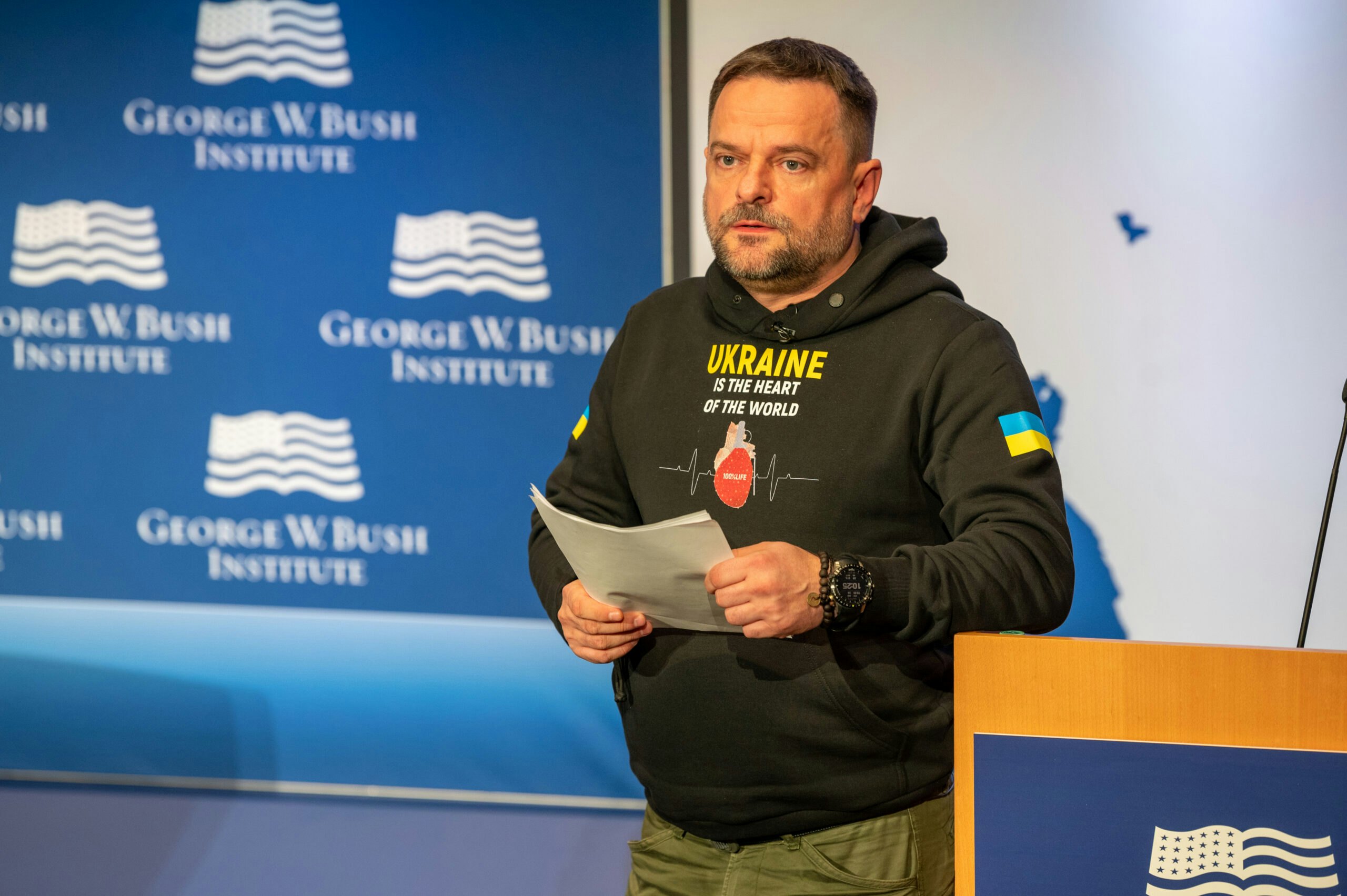Women living with HIV are up to six times more likely to develop cervical cancer. In Sub-Saharan Africa, roughly 110,000 women are diagnosed with cervical cancer each year, making it one of the deadliest cancers among women in the region. To combat these statistics, the United States President’s Emergency Plan for AIDS Relief (PEPFAR), the George W. Bush Institute, UNAIDS, Merck, and Roche created the Go Further partnership to eliminate cervical cancer among women living with HIV in sub-Saharan Africa.
Since the launch of Go Further in 2018, PEPFAR has supported 12 African countries to conduct over 7.2 million cervical cancer screenings for women living with HIV and supported more than 298,000 treatments for precancerous lesions.*
In August 2023, Hannah Johnson, Program Manager of Global Policy at the Bush Institute, visited Namibia with representatives of Go Further to understand the successes and challenges surrounding efforts to eliminate cervical cancer in the country. Read Johnson’s trip diary below.
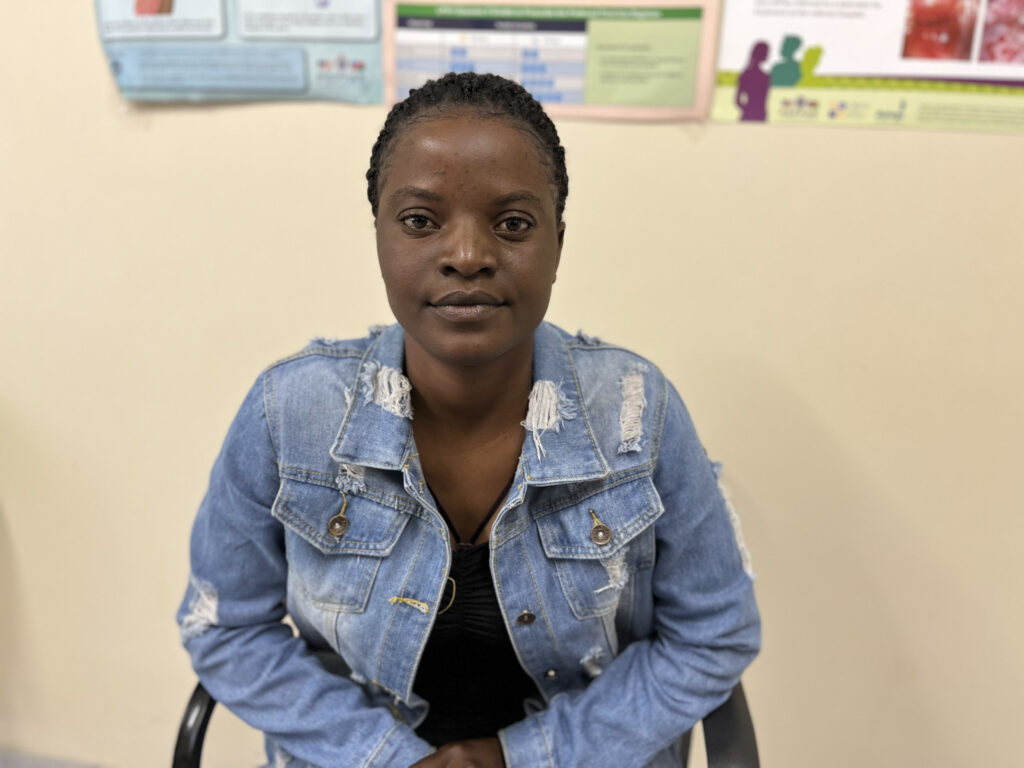
At Tamariskia Clinic, I met Rauha Lazzy. She’s been coming to this clinic for five years and was introduced to cervical cancer screening services by Development AID from People to People (DAPP), a community-based partner organization supported by PEPFAR and Go Further. Rauha shared that the DAPP community workers wear bright red t-shirts that make them instantly recognizable and stand out. Over the years, she’s developed a deep connection with these field officers, noting that “If I want to share something I cannot even share with my friends or family… I can say it [to] one of them.”
Go Further’s use of community-based partnerships builds on PEFPFAR’s successful collaboration with governments, faith-based organizations, and local communities. Funding from Go Further ensures that interventions to address cervical cancer at clinics and in the community are tailored to the needs of the people, like Rauha. Collaboration and support have drastically changed the trajectory of the HIV/AIDS pandemic and made substantial progress when it comes to screening, treating, and preventing cervical cancer. Rauha says her community has changed a lot in the past 20 years. In the past, she said she often heard stories of people and family members dying from AIDS. Now, more people are living long and healthy lives.
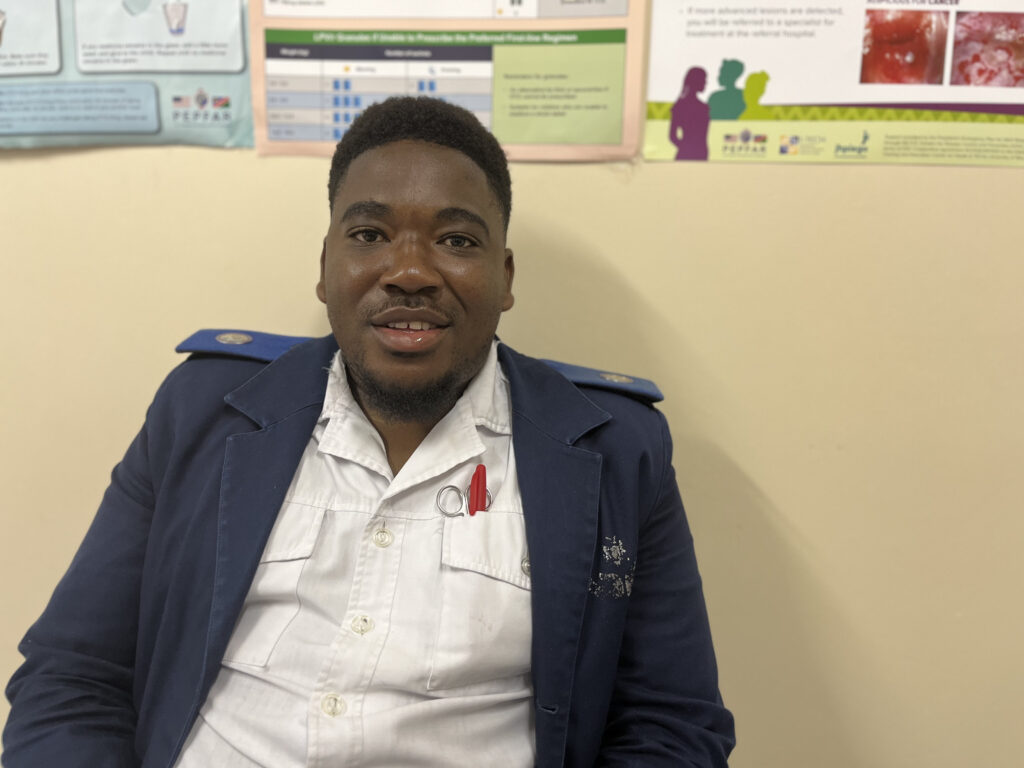
I also met Bernard, a nurse trained in VIA (visual inspection with acetic acid) screening, the primary cervical cancer screening method in Namibia. Bernhard shared that since Go Further started collaborating with the Ministry of Health and Social Services, many health services are more accessible, including cervical cancer screening. He hopes that “PEPFAR continues helping the Ministry, because there are some areas that we need the expertise of PEPFAR.”
Go Further supports countries to integrate cervical cancer screening services and treatment for precancerous lesions within existing platforms for HIV treatment. Sustainable health infrastructure put in place by the Ministry of Health and Social Services and PEPFAR makes it possible to successfully provide additional services like cervical cancer screening and treatment.
Throughout the patient journey, women must confront and overcome multiple barriers to care, including the stigma associated with HIV. At Okuryangava Clinic, nurse Helvi Hamunga walked us through the patient journey for VIA screening and precancer treatment. Ndilimeke and Peneyambeko, two women who have been coming to the clinic since 2015, shared how nurses and doctors at the clinic are friendly, even making jokes with patients to ease their nerves.
By creating an environment of confidentiality and comfort, staff ensure that women are properly educated on their health and feel safe returning to the clinic. “I was scared [to get screened],” Peneyambeko said. “The moment they explain[ed it] to me [I was not] scared anymore. I just went for it.”
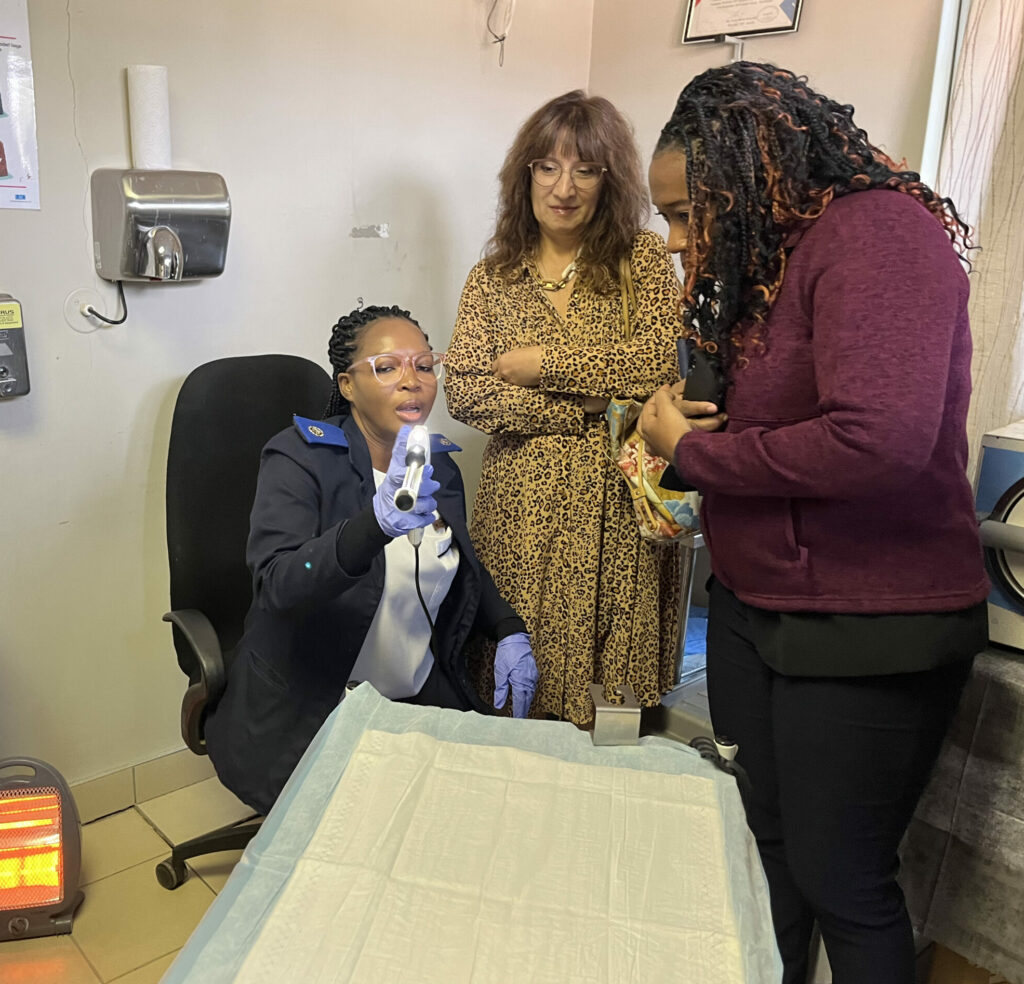
Peneyambeko and Ndilimeke have become advocates for cervical cancer in their community, sharing the importance of routine screenings with their friends and family. Peneyambeko said she hopes that women in her community, “Don’t give up [on their] life, don’t give up [on their] family, don’t give up [on their] friends, don’t give up [on their] neighbor. You must get [screened].”
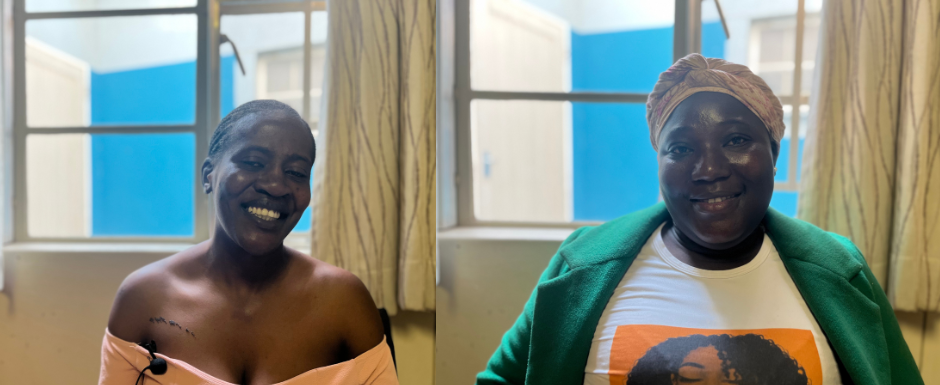
At Epako Clinic, I met Vanessa and Ebenecia, two women who have received cervical cancer screening services and have shared information with members of their community to raise awareness about HIV and cervical cancer. Vanessa is a community volunteer and often joins meetings at the local church where she shares her story, and Ebenecia works with young women. Both women stress the importance of testing and mentoring. and when women tell Vanessa that they are HIV-positive, she even offers to join them at the clinic for their screening.
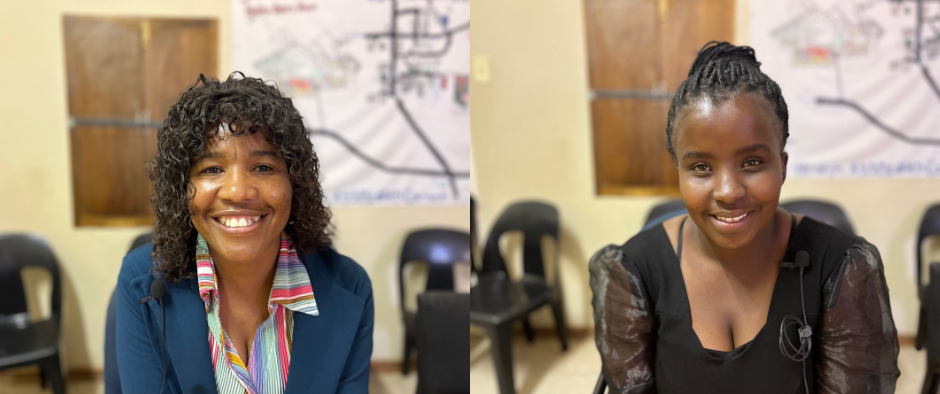
Between 2019 and 2023, Namibia’s Cervical Cancer Prevention Program (CECAP) has conducted over 75,000 screenings for cervical cancer, 61% of which were among women being screened for the first time. Hearing the stories from the women who use the cervical cancer screening services, and from the staff that provide these services, clearly illustrates why the country is a model for success. By integrating services and utilizing community-based partnerships, Namibia is on track to quickly surpass global targets for cervical cancer screening and treatment, successfully addressing a preventable cancer and saving lives.
*Note: FY23 results are not included for Tanzania due to data quality improvement efforts.


























